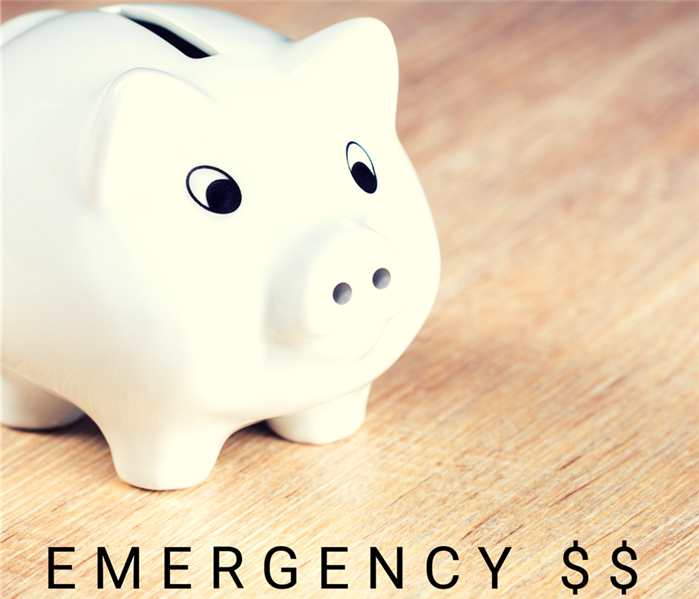Preparedness Profile: Emergency Finances
9/26/2018 (Permalink)
For our final Preparedness Profile as September (AKA National Preparedness Month) comes to an end, we’d like to talk to you about emergency finances.
Being ready for a disaster doesn’t just mean having a plan in place, or creating an emergency kit, it means making sure your bank account and insurance policies are ready if worse comes to worst.
Having your finances in place is so important, because disasters can be devastating financially. For example, Ready.gov, says that just one inch of water in your home during a flooding situation can cause $25,000 worth of damage.
Now, it’s unlikely that you have (or can get) a spare $25,000 in your bank account on short notice and that’s why it’s so important you make sure you have any insurance coverage you might need. Have a conversation with your insurance agent about your policy. What possible holes exist in your coverage? What might you need if disaster strikes?
There are a lot of unknowns when it comes to insurance that only a professional can help with. For example, did you know that most homeowners’ and renters’ insurance does NOT cover flood damage? You often need an additional flood insurance policy. Even if you don’t live near a body of water, the experts say, anywhere it rains it can flood.
In addition to having the right insurance coverage, it’s also a good idea to have SOME money set aside for a disaster, or emergency situation. This will ensure you can still care for your family if something prevents you from working.
Ready.gov advises putting aside a little bit of money each month in a savings account that is only to be used in case of emergencies. The website also advises you have any paychecks or benefit checks directly deposited into your bank account to ensure you continue to receive your money in the midst of any disasters.
In addition, Ready.gov has a list of identifying and financial documents you’ll want copies of in case of emergencies. Those documents include:
- Photo ID
- Birth certificates for all household members
- Social Security card
- Any military ID
- Pet ID tags
- Housing payment records
- Insurance policies
- Proof of income
- Tax documents
- Health records
- Health insurance documents
- Immunization records
- Prescriptions
It’s likely no surprise disaster situations can be costly, but if you plan ahead you can offset those costs and ease any burdens that might come your way.



 24/7 Emergency Service
24/7 Emergency Service
